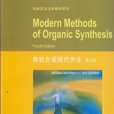作者簡介
作者:(英國)卡如薩 (Carruthers.W.)
內容簡介
《有機合成現代方法(第4版)》初版於1971年,1978年出了第2 版,1986年出了第3版,1987年至2002年,《有機合成現代方法(第4版)》共重印9次,2004年第4版,2005年重印出版,由此可見,這是一部很受歡迎的經典教科書。該書在經典有機合成的框架內引入現代方法,概念清晰,引證豐富,重點突出,文字精煉。論述上注意由淺入深,不同層次的讀者均可從中受益。
目錄
Preface to the first edition
Preface to the fourth edition
1 Formation of carbon-carbon single bonds
1.1 Main-group chemistry
1.1.1 Alkylation of enolates and enamines
1.1.2 Conjugate addition reactions of enolates and enamines
1.1.3 The aldol reaction
1.1.4 Asymmetric methodology with enolates and enamines
1.1.5 0rganolithium reagents
1.1.6 0rganomagnesium reagents
1.1.7 Organozinc reagents
1.1.8 Allylic organometallics of boron, silicon and tin
1.2 Transition-metal chemistry
Problems
1.2.1 Organocopper reagents
1.2.2 Organochromium chemistry
1.2.3 Organocobalt chemistry
1.2.4 0rganopalladium chemistry
2 Formation of carbon-carbon double bonds
2.1 3-Elimination reactions
2.2 Pyrolytic syn eliminations
2.3 Fragmentation reactions
2.4 Alkenes from hydrazones
2.5 Alkenes from 1,2-diols
2.6 Alkenes from alkynes
2.7 The Wittig and related reactions
2.8 Alkenes from sulfones
2.9 Alkenes using titanium or chromium reagents
2.10 Alkene metathesis reactions
Problems
3 Pericyclic reactions
3.1 The Diels-Alder cycloaddition reaction
3.1.1 The dienophile
3.1.2 The diene
3.1.3 Regiochemistry of the Diels-Alder reaction
3.1.4 Stereochemistry of the Diels-Alder reaction
3.1.5 Intramolecular Diels-Alder reactions
3.1.6 The retro Diels-Alder reaction
3.1.7 Asymmetric Diels-Alder reactions
3.2 [2+2] Cycloaddition reactions
3.3 Cycloaddition reactions with allyl cations and allyl anions
3.4 1,3-Dipolar cycloaddition reactions
3.5 The ene reaction
3.6 [3,3]-Sigmatropic rearrangements
3.6.1 The Cope rearrangement
3.6.2 The Claisen rearrangement
3.7 [2,3]-Sigmatropic rearrangements
3.8 Electrocyclic reactions
Problems
4 Radical and carbene chemistry
4.1 Radicals
4.1.1 Radical abstraction reactions
4.1.2 Radical addition reactions
4.2 Carbenes
Problems
Functionalization of alkenes
5.1 Hydroboration
5.1.1 Reactions of organoboranes
5.2 Epoxidation and aziridination
5.2.1 Epoxidation
5.2.2 Asymmetric epoxidation
5.2.3 Aziridination
5.3 Dihydroxylation
5.3.1 Dihydroxylation with osmium tetroxide
5.3.2 Other methods of dihydroxylation
5.3.3 Amino-hydroxylation
5.4 Oxidative cleavage
5.5 Palladium-catalysed oxidation of aikenes
Problems
6 Oxidation
6.1 Oxidation of hydrocarbons
6.1.1 Alkanes
6.1.2 Aromatic hydrocarbons
6.1.3 Alkenes
6.2 Oxidation of alcohols
6.2.1 Chromium reagents
6.2.2 Oxidation via alkoxysulfonium salts
6.2.3 Manganese reagents
6.2.4 Other metal-based oxidants
6.2.5 Other non-metal-based oxidants
6.2.6 oxidation to carboxylic acids or esters
6.3 Oxidation of ketones
6.3.1 a,~~3-Unsaturated ketones
6.3.2 a-Hydroxy-ketones
6.3.3 Baeyer-Villiger oxidation of ketones
Problems
7 Reduction
7.1 Catalytic hydrogenation
7.2 Reduction by dissolving metals
7.3 Reduction by hydride-transfer reagents
7.3.3 Derivatives of lithium aluminium hydride and sodium
borohydride
7.3.4 Mixed lithium aluminium hydride-aluminium chloride
reagents
7.3.5 Diisobutylaluminium hydride (DIBAL-H)
7.3.6 Sodium cyanoborohydride and sodium
triacetoxyborohydride
7.3.7 Borane and derivatives
7.4 Other methods of reduction
7.4.1 Enzyme catalysed
7.4.2 Wolff-Kishner reduction
7.4.3 Reductions with diimide
7.4.4 Reductions with trialkylsilanes
Problems
Answers to problems
Index

